- Home
- Prelims
- Mains
- Current Affairs
- Study Materials
- Test Series
06th Nov 2021
CENTRE TO UTILISE REVENUE SURGE TO FUND WELFARE PROGRAMMES
India will utilise a big jump in revenue collection to fund welfare programmes instead of reducing its fiscal deficit target or lower borrowing.
Highlights:
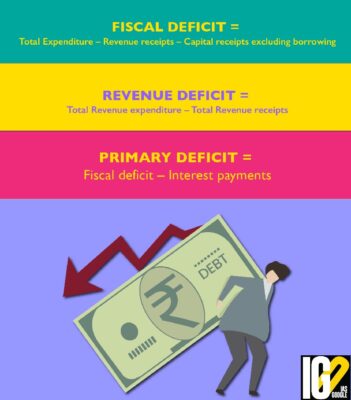

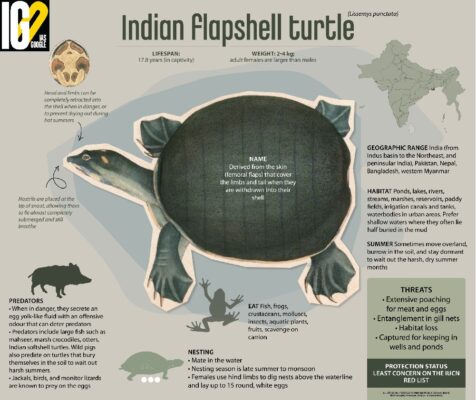
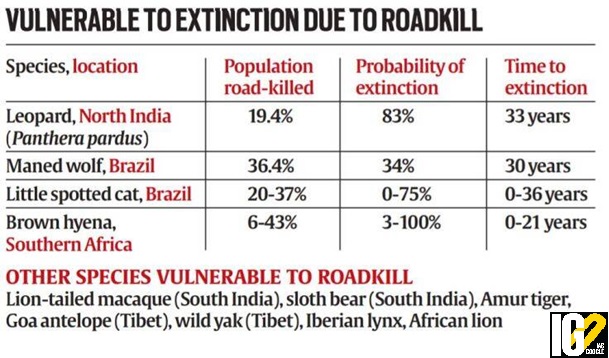
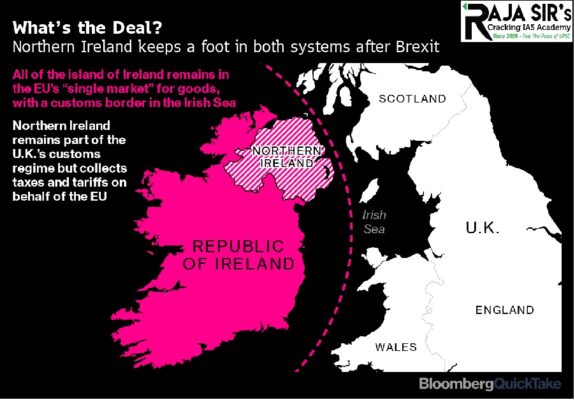

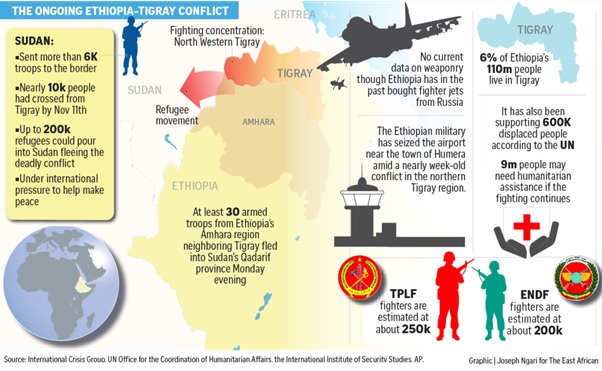 Genesis:
Genesis:
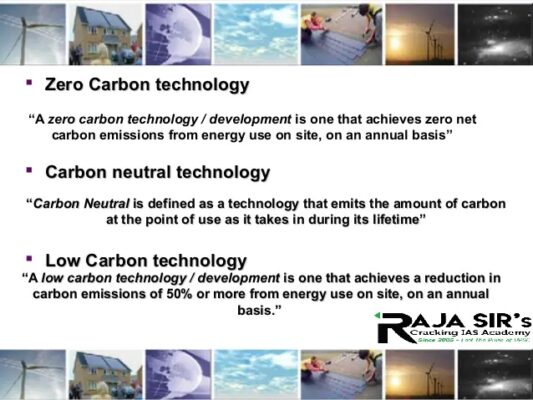

- For the current financial year, the government expects the fiscal deficit at 6.8 % of GDP or 15.45 lakh crore.
- The fiscal deficit for 2020-21 was 9.3 % of GDP.
- Government of India will provide an additional Rs 50,000 crore each for its free food drive and an incentives programme for exporters.
- It has approved Rs 40000 crore in fertiliser subsidies.
- Fiscal Deficit is the difference between the total income of the government (total taxes and non-debt capital receipts) and its total expenditure.
- A fiscal deficit occurs when the government’s expenditure exceeds its income.
- A recurring high fiscal deficit means that the government has been spending beyond its means.
- Revenue Receipts of the Government
- Corporation Tax
- Income Tax
- Custom Duties
- Union Excise Duties
- GST and taxes of Union territories.
- Non-Tax Revenue
- Interest Receipts
- Dividends and Profits
- External Grants
- Other non-tax revenues
- Receipts of union territories
- A fiscal deficit will tend to increase overall government debt.
- As government debt rises, so do interest rates.
- When government borrows more, it needs to offer higher rates to attract investors
- This is because a higher debt increases the likelihood of a potential default.

- India improved to the second position among exporting developing countries in commercial services trade.
- For imports, the country remained in the third position.
- India’s share in merchandise exports by developing countries dropped to 3.6% in 2020 from 3.9% in 2018.
- The share in merchandise imports by developing countries fell to 5.2% from 6.4%.
- India’s exports contracted 14.7% to $276.5 billion in 2020.
- In service exports, India’s share rose to 14% in 2020 from 11% in 2018, while in services imports, its share increased to 9.4% from 8.1%.
- Among the top 10 export destinations of developing countries, India slipped from the ninth position in 2018 to the 10th in 2020.
- India’s imports dipped by 23.2% to $373.3 billion as the pandemic disrupted supply chains and recession in many developed countries reduced demand for goods as a result
- Merchandise exports of developing economies dropped by 6% in nominal terms in 2020, less than exports of the rest of the world (-9%).
- In 2020, China and India, saw slower declines than other developing economies.
- Expanding IT services and business services (+5%) helped India’s services.
- Before the pandemic, these sectors accounted for 65% of India’s services exports.
- Merchandise exports of developing economies continue to be dominated by exports of manufactured goods.
- China, South Korea, and Mexico remained the top merchandise traders among developing economies.
- China being the leading exporter with a share of 34% in 2020, followed by South Korea (7%), Mexico (5%) and Singapore (5%).
- Out of the seven other top 10 exporters, India (-15%), Turkey (-7%), Thailand (-2%) suffered declines in manufacturing exports.
- The Committee on Trade and Development (CTD) serves as a focal point for the consideration and coordination of work on development in the WTO.
- It considers a broad range of issues relating to the trade of developing countries.
- Technical Assistance
- The CTD is mandated to provide guidelines for the technical assistance activities of the WTO and to review periodically these activities.
- Special Provisions
- The Doha Ministerial Declaration states that all special and differential treatment (S&D) provisions for developing countries will be reviewed
- To strengthening them and making them more precise, effective, and operational.
- Aid for Trade
- The Aid for Trade is a biennial work programme, guides the work of the Committee with workshops held regularly on topics of interest to WTO members.
- Regional Trade Agreements
- The Committee serves as the forum for the notification and review of regional trade agreements (RTAs) between developing countries.

- It is a freshwater species of turtle.
- The "flap-shelled" name comes from the presence of femoral flaps located on the plastron.
- Plastron- It is a flat part of the shell structure of a turtle
- These flaps of skin cover the limbs when they retract into the shell.
- The nose is short and stout.
- The edges of the jaws are smooth.
- The claws are large and heavy and the tail is very short.
- Indian flapshell turtles are omnivores. They feed on frogs, fishes, shrimp, snails, aquatic vegetation, plant leaves, flowers, fruits, grasses, and seeds.
- They are found in Pakistan, India, Sri Lanka, Nepal, Bangladesh (Indus and Ganges drainages), and Myanmar
- They live in the shallow, quiet, often stagnant waters of rivers, streams, marshes, ponds, lakes and irrigation canals, and tanks.
- They prefer waters with sand or mud bottoms because of their tendency to burrow.
- IUCN Red List: Vulnerable
- CITES: Appendix II
- Wildlife (Protection) Act, 1972: Schedule I
- Turtles are smuggled and killed for their supposed aphrodisiac properties, livestock feed, to make leather from their skins, to make potions from their blood and to use as fishing bait.
- Turtles are also used for meat and medicines.
- KURMA app is a mobile-based application aimed at turtle conservation.
- It was launched on the occasion of World Turtle Day (23rd May)
- It was developed by the Indian Turtle Conservation Action Network (ITCAN) in collaboration with the Turtle Survival Alliance-India and Wildlife Conservation Society-India.
- Indian Turtle Conservation Action Network (ITCAN)
- It is a citizen science initiative launched to provide a platform for the exchange of information on turtles and to provide assistance to enforcement forest departments.

- Leopards are part of the cat family.
- The name “leopard” comes from the Greek word leopardus, which is a combination of leon (lion) and pardus (panther).
- They are well known for their cream and gold spotted fur; some leopards have black fur with dark spots.
- Males and females vary in weight.
- They are nocturnal, hunting prey at night.
- Leopards are carnivores
- They are very strong swimmers.
- They live in rocky landscapes with dense bush and riverine forests, but they have been highly adaptable in both warm and cold climates.
- They are largely restricted to Sub-Saharan Africa with small numbers also found in India, Pakistan, Malaysia, China
- IUCN Red List: Vulnerable
- CITES: Appendix I
- Wildlife (Protection) Act, 1972: Schedule I
- Animals in Schedule I are provided absolute protectionagainst hunting and commercial exploitation and attracts maximum penalty for the violation of such provisions.
- Poaching for illegal trade in body parts
- Habitat Loss
- Human-Leopard conflict
- Deaths in Road accidents.

- The UK comprises Wales, Scotland, England and Northern Ireland. Out of these, Northern Ireland is the only country, which still remains within the EU’s single market system for goods.
- EU’s single market system means that Northern Ireland must follow the rules of the EU's single market, resulting in checks on certain goods coming from England, Scotland and Wales into Northern Ireland.
- The Northern Ireland Protocol was a part of the European Union and United Kingdom's Brexit agreement.
- It prevents checks on goods coming from Northern Ireland (part of the UK) into the Republic of Ireland (part of the EU).
- Having the backstops means that there would be no border between Northern Ireland and the Republic of Ireland.
- It also means that goods cross to and from the country into the EU without customs checks, tariffs and extra paperwork.
- This has led to protests from unionists in Northern Ireland who say the protocol weakens ties with the rest of the UK and has created shortages.

- Article 16 is a mechanism that allows either party to unilaterally take safeguard measures in the event that the protocol leads to serious economic, societal or environmental difficulties that are liable to persist, or to diversion of trade.
- The measures are meant to be restricted in scope and duration to what is strictly necessary in order to remedy the situation.
- In other words, the measures are not meant to disruptthe functioning of the protocol or to suspend the protocol.
- If either the EU or the UK triggers the clause, the other party may take proportionate measures to remedy the imbalance.
- UK has already unilaterally introduced grace periods on customs checks for certain goods and the Protocol states any measures need to address a specific issue.
- UK could use Article 16 to try and suspend almost all of its obligations related to trade under the Protocol.
- As per the Protocol, the triggering of Article 16 is immediately followed by a month of negotiations between the UK and the EU Joint Committee before any safeguarding measures are introduced. Once these are introduced, they must be reviewed every three months.
- If EU decides that UK is using Article 16 improperly or is in breach of the Withdrawal Agreement, it could turn to the dispute settlement mechanism.
- If it found that it has breached it, then the EU could suspend parts of the Withdrawal Agreement and also the Trade and Cooperation Agreement, which would allow it to impose tariffs in some areas.
- The EU could however take some unilateral measures in the interim.
- This could include withdrawing the data adequacy granted to the UK which allows for personal data to flow between the two sides.
- It could decide to suspend the Trade and Cooperation Agreement entirely.
- Leucine zipper transcription factor like 1, also known as LZTFL1, is a ubiquitously expressed protein which localizes to the cytoplasm and in humans is encoded by the LZTFL1 gene.
- Function: This protein regulates protein trafficking to the ciliary membrane through interaction with the Bardet-Biedl syndrome (BBS) complex of proteins.
 Genesis:
Genesis:
- Since 1994, Ethiopia had a federal system in which different ethnic groups control the affairs of 10 regions.
- For example, Tigray region of Ethiopia was governed by Tigray People’s Liberation Front (TPLF).
- TPLF governed Ethiopia from 1991, when a military regime was ousted from power.
- Ethiopia’s federal government and Tigray regional forces regard each other as illegal when the new Prime Minister Ethiopia came to power in 2018.
- He liberalized politics, set up a new party, and removed Tigrayan government leaders accused of corruption and repression.
- The feud came in September 2021, when Tigray defied the central government to hold its own regional election.
- The conflict grew when the central government suspended funding for Tigray and cut ties with it.
- This led to a "declaration of war".
- Chatasalis are schools in rural areas run by educated persons to provide basic education to children.
- They are not government-recognised but some students study in these institutions till fourth grade.
- It is one of many traditional practices prevalent in Odisha.

- It’s a platform for companies to commit to buying zero-emission goods and services by 2030.
- Aim: to unlock the untapped potential of emerging technologies needed to decarbonize the world by 2050.
- Objective: to create demand for low-carbon technologies, make them cost-competitive and build the clean supply chains of the future.
- It works across eight key sectors: steel, cement, aluminium, chemicals, shipping, aviation, trucking, direct air capture.









 Latest News
Latest News
 General Studies
General Studies